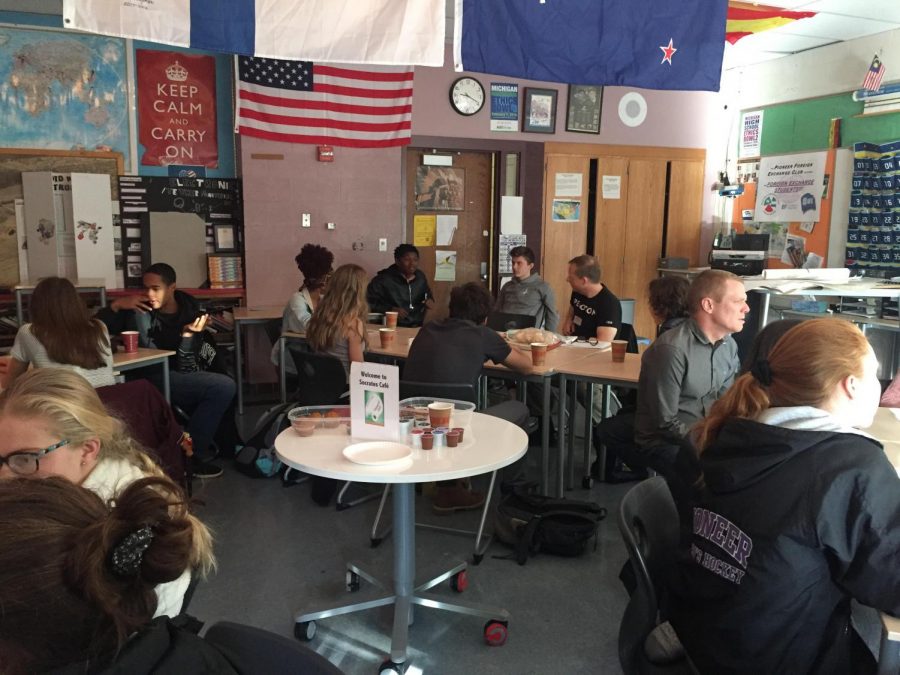Philosophy Course Returns to Pioneer
For the first 2018-19 semester, Pioneer has restored the Philosophy course after a year of it not being offered. The class, which is taught by ethics bowl coach and history teacher Brent Richards, covers the basics of Philosophy and analyzes many moral dilemmas. Additionally, the revival of the elective will focus on class conversations over ethical solutions.
Many students were excited to see the return of Philosophy. “I’ve always been interested in the deep questions that no one really asks,” said Pioneer junior Gabbi Slocum. “I thought that this class would have many opportunities to have open discussions on such questions.”
Richards kept the idea of open discussions in mind when he was creating the class. “That’s probably one of the biggest goals I have,” said Richards. “Working with my classes and having civil and respectful dialogue… my hope is that some people will respond initially with one thought, but then after all the dialogue, change their opinion.”
Since the beginning of the semester, the class has been presented many ethical dilemmas, as well as with two case studies on the value of human life and the coverage of transgender surgeries under medical insurance. Some students say that discussions of controversial topics helps in developing argumentative skills. “I like discussing my opinion but I need experience discussing my opinion or how to argue for my opinion,” Celine Castle, a Pioneer junior and ethics bowl member, said. “Philosophy itself is different viewpoints… The entire class is a discussion and there is no right answer.”
In order to help create a respectful environment for discussion, Richards started with specific ice-breaker games designed to create a sense of understanding. An ‘eye-contact’ game, where students went around the room silently and stared into each other’s eyes for 15 seconds each, was taken from studies that suggest mutual respect and improved listening skills comes from looking someone in the eye. “So far, I’m liking the atmosphere of the class and how Mr. Richards is having us become closer so we can have deeper conversations,” said Slocum.
In many ways, the Philosophy course is also connected to the Pioneer ethics bowl team, where students participate in an annual competition to have a civil discussion over ethical cases with teams from other schools. “[Philosophy] really came out of ethics bowl,” said Richards. “In [seeing] all the ethics teams throughout the years it’s been really interesting… to watch [students] be judged on their ability to have civil conversations that are also… thoughtful and well-researched.”
In resurrecting the Philosophy course, Richards also addressed any concerns over whether his Philosophy class would simply be a replication of former Philosophy teacher, JR’s teachings. “I have no intention of making it JR’s philosophy,” he said. “That would be unfair to him, to me, and to the [students]. The only thing I want to take from his class is the building of community and trust in the room.”
Ultimately, students are in the Philosophy classroom to get exposure to a deeper level of thinking in a high-school setting. “I think every day we get by with our routines but there are those moments where we ask the questions of ‘why are we doing this?’,” said Slocum. “Those are the moments that we learn from and help us better understand the underlying meaning of our basic tasks.”


